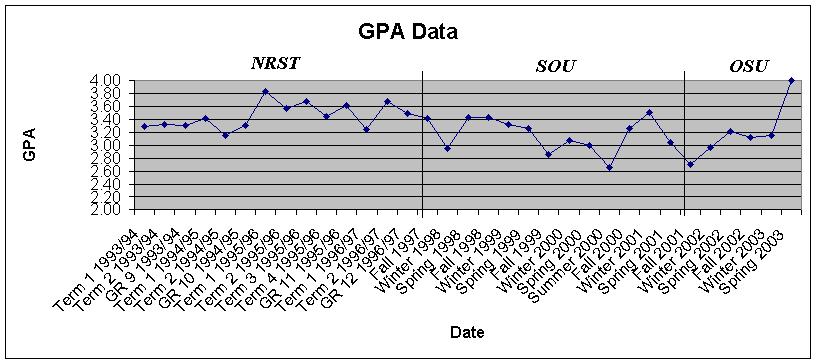GPA as a Statistical Process
2/8/16
GPA, or grade point average, is a method of computing a numerical value for letter grades received in school by assigning each a numeric value and averaging the numbers. GPA can be calculated unweighted or weighted.
It is well known that GPAs have many limitations. A student can have a very high grade in subject X and a very low grade in subject Y and they can average out to a decent GPA, but obviously the student needs help in subject Y. Students can also have low GPA because they, gasp!, want to become entreprenuers instead of continue in school. They can have high GPA because they cheat. They can have low GPA because they are bad test takers. They can get high GPA, go to a great college, and flunk out. They can have low GPA, drop out, and be extremely successful in life. The threat of "grade inflation". The failure of GPAs to capture real-world experience. There are about a zillion examples of issues with calculating GPA and the dangers of students, parents, teachers, and colleges obsessing over it.
The statistician in me sees about everything in life as a random variable and as a process, and GPA is no different. Consider this graph of my GPA over time, starting at high school and ending at graduate school:

Note that the times where my GPA was considered low (say below 3.0) were no real reason for concern, and neither were short downwards trends. In fact, these times were probably just normal variation in the process of schooling, being stressed, busy, doing new things, trying to master very difficult subjects, and so on. Of course, those times were treated as "the end of the world" by some teachers, and I received a feeling of "that Justin better get his act together ASAP"! However, if you treat GPA in a standard quality control/statistical process control framework, one can say my GPAs fell within the upper and lower control limits pretty much all the time. In other words, "nothing to see here, move along".
My advice? Make a time-series graph of your child(rens) GPA. Do not overreact to a few GPAs that are considered low, especially if they are not consecutive. If you do give rewards, reward based on consistency and being above the lower control limit. Reward for a positive trend that occurs after a GPA lies below the lower control limit. Obviously encourage learning the subject first, and let your child know that the GPA will take care of itself, even if others stress out about it.
Please anonymously VOTE on the content you have just read:
Like:Dislike: